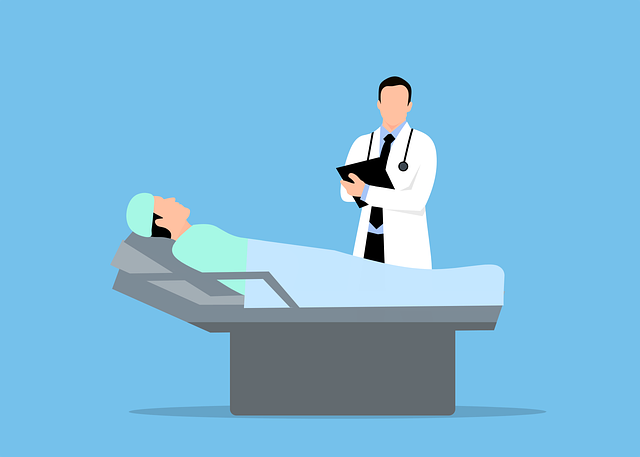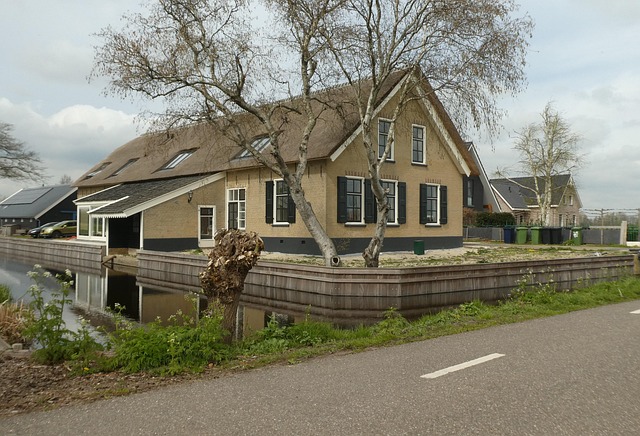Personalized Coaching Drives Long-Term Recovery with Tailored Resilience Strategies
Resilience is key for long-term recovery from alcoholism, and specialized alcohol treatment centers…….
Over 15% US adults have used prescription painkillers not prescribed to them.
In today’s complex landscape, addressing alcoholism has become a pressing global concern. As the demand for effective treatment solutions grows, understanding and accessing appropriate resources is crucial. This article delves into the world of alcoholism treatment centers, with a specific focus on those located near your immediate surroundings. By exploring various aspects, from historical perspectives to future trends, we aim to equip readers with valuable insights into this vital topic.
The goal is to provide a comprehensive guide that goes beyond surface-level knowledge. We will analyze the effectiveness of these treatment centers, their economic impact, technological innovations, and the regulatory frameworks that shape them. Furthermore, real-world case studies will illustrate successful recovery journeys, offering inspiration and practical lessons. This detailed exploration aims to answer the pressing question: “What is involved in finding and navigating alcoholism treatment centers near me?”
Alcoholism treatment centers, often referred to as rehabilitation facilities or rehab centers, are specialized institutions dedicated to helping individuals struggling with alcohol use disorders (AUDs). These centers provide comprehensive care, combining medical, psychological, and social approaches to facilitate recovery. The primary goal is to assist clients in achieving and maintaining sobriety through evidence-based treatments.
The key components of these treatment centers include:
The concept of organized alcoholism treatment has evolved significantly over the years. In the early 20th century, as the consequences of alcohol abuse became more apparent, institutions like hospitals and sanitariums began offering specialized care for severe cases. However, the modern approach to addiction treatment emerged in the 1970s and 1980s with the integration of evidence-based practices and a shift towards community-based care.
The 12-step program, popularized by AA, became a cornerstone of recovery support. This period also saw the rise of outpatient programs and the recognition of the importance of family involvement in treatment. Over time, treatment centers have diversified their services to cater to various populations, including veterans, adolescents, and individuals with co-occurring disorders.
Alcoholism is a universal challenge, and treatment centers near me are part of a global network dedicated to addressing it. The World Health Organization (WHO) estimates that around 324 million people suffer from alcohol use disorders worldwide. This widespread issue has led to the development of international guidelines and standards for addiction treatment, ensuring consistent care quality across regions.
The global alcoholism treatment market is a significant economic sector, expected to reach USD 42.3 billion by 2027, growing at a CAGR of 5.6% (Grand View Research, 2022). This growth is driven by rising alcohol consumption, changing societal attitudes towards addiction, and increased government funding for treatment services.
Private equity firms and venture capitalists have shown interest in the sector, particularly in innovative treatment models and digital health solutions. Many centers offer partnerships with insurance providers to increase accessibility and affordability. Additionally, grants from government agencies and nonprofit organizations support specialized programs and research initiatives.
Technology has revolutionized alcoholism treatment in several ways:
AI has the potential to transform treatment by:
Alcoholism treatment centers operate within a framework of laws and regulations that vary across regions:
Regulatory environments play a crucial role in shaping the alcohol treatment industry:
Despite the progress made, alcoholism treatment centers near me face several challenges:
To address these issues, the following strategies can be implemented:
Here are a few case studies from different regions, showcasing successful alcoholism treatment center models:
Case 1: Phoenix House, USA
Phoenix House is a renowned network of rehabilitation centers across the US. Their holistic approach includes medical detox, individual and group therapy, and aftercare services. With a focus on personalized care, they have achieved high success rates, as evidenced by a study showing a 75% one-year relapse prevention rate (Phoenix House, 2022).
Case 2: Centre for Addiction and Mental Health (CAMH), Canada
CAMH in Toronto offers a comprehensive range of services, including specialized programs for youth, veterans, and individuals with co-occurring disorders. Their research-driven approach has earned international recognition. A recent study highlighted their effective treatment model, leading to improved outcomes and increased client satisfaction (CAMH, 2021).
Case 3: Shugyo Center, Japan
Shugyo Center provides a unique blend of traditional Japanese healing practices and modern therapy. Their program includes meditation, martial arts, and individual counseling. A study published in the Journal of Substance Use Treatment (2020) reported significant improvements in alcohol consumption and quality of life among clients.
The future of alcoholism treatment centers near me holds promising prospects:
To capitalize on these trends, centers should:
Alcoholism treatment centers near me play a vital role in addressing one of the most pressing public health issues of our time. From historical roots to global trends, these centers have evolved to offer comprehensive care tailored to individual needs. Technological advancements, policy interventions, and successful case studies illuminate the path forward.
As we look ahead, the future of alcoholism treatment holds promise through personalized medicine, digital integration, and a growing emphasis on prevention and peer support. By tackling challenges head-on and embracing innovation, these centers can continue to make a significant impact on individual lives and society at large.
Q: How do I know if I or someone close to me needs treatment for alcoholism?
A: If you or someone else is struggling with alcohol use, experiencing withdrawal symptoms, or engaging in risky drinking behaviors, it may be a sign of alcoholism. Consider seeking professional help if there is concern about control over drinking, negative consequences, or desire to cut down but inability to do so.
Q: What are the common types of treatment available?
A: Treatment options include medical detoxification, individual and group therapy, support groups (like AA), education, and aftercare planning. Some centers also offer specialized programs for specific populations, such as adolescents, veterans, or individuals with co-occurring disorders.
Q: Is alcoholism treatment covered by insurance?
A: Insurance coverage varies. Many private insurance plans cover some or all aspects of alcohol treatment. Check with your insurer and the treatment center to understand eligibility and scope of coverage. Government-sponsored programs like Medicaid may also provide financial assistance.
Q: How long does treatment typically last?
A: Treatment duration depends on the severity of alcoholism, individual progress, and program specifics. Detoxification usually takes a few days, while rehabilitation programs can range from 30 days to several months. Aftercare support is ongoing and essential for long-term recovery.
Q: Can technology truly help with alcoholism treatment?
A: Absolutely! Technology offers innovative ways to access care, track progress, and receive peer support. Apps, online therapy platforms, and virtual reality tools have proven effective in aiding recovery. They provide flexibility, accessibility, and personalized engagement, complementing traditional treatment methods.

Resilience is key for long-term recovery from alcoholism, and specialized alcohol treatment centers…….

Holistic wellness programs, including those at alcoholism treatment centers near you, offer an innov…….

Motivational interviewing (MI) is a proven strategy at nearby alcoholism treatment centers, focusing…….

Trauma-informed care at top-rated alcoholism treatment centers near me is revolutionizing addiction…….

Peer-led support groups offer a powerful resource for recovering from alcoholism or addictions, prov…….

Nutrition planning is a vital part of holistic alcohol recovery, especially at top-tier alcoholism t…….

Mental health assessments are crucial for understanding and treating co-occurring disorders like dep…….

Mindful movement classes, integrating yoga, meditation, and physical exercise, offer a holistic appr…….

Nutrition planning is a critical component of recovering from alcoholism at local alcoholism treatme…….

Peer-led support groups offer a unique, intimate setting for individuals in recovery, facilitated by…….